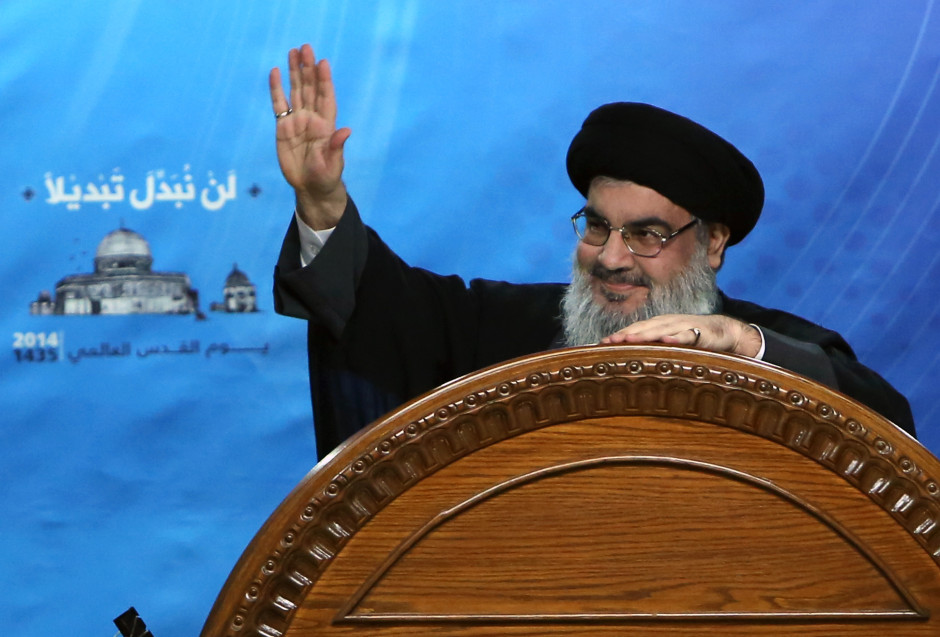In what was an epic failure of intelligence during its most recent war with Hamas in the Gaza Strip, Israel stumbled upon a cross-border tunnel network of frightening proportions of which it had scant knowledge. The discovery prompted Israeli pundits to speculate whether Hezbollah, Israel’s Shiite enemy to the north, possesses the same array of attack tunnels aimed at Israel.
It was not an idle question. Hezbollah, in its last war with Israel eight years ago, used such tunnels as part of its guerrilla warfare strategy.
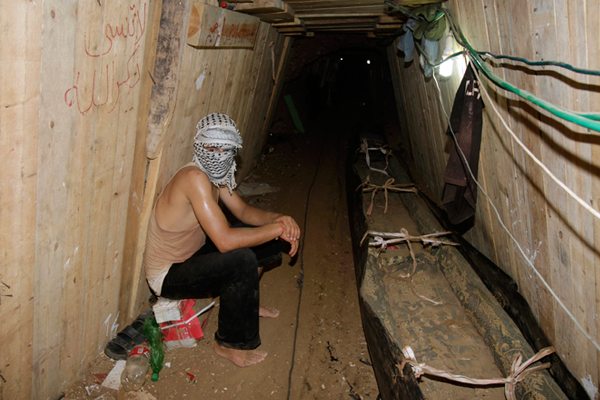
The Israeli army, in Gaza, discovered 32 attack tunnels, 14 of which extended into Israel perilously close to kibbutzim, moshavim and army positions. Israel knew that Hamas had dug a maze of tunnels, but had no idea of the scope.
Reflecting on the deadly potential of these tunnels, which claimed the lives of 11 Israeli soldiers in pitched battles with Hamas fighters, Israeli Prime Minister Benjamin Netanyahu warned that they could have had “catastrophic” consequences had they been found too late.
Hezbollah, always eager to rattle Israeli nerves, addressed the tunnel issue just prior to the outbreak of the latest war in Gaza.
In an article published on its Al-Manar website on June 15, Hezbollah claimed it has built hundreds of booby-trapped tunnels in southern Lebanon in the past two years. These tunnels, it noted, would permit its fighters to move around easily and launch nasty surprises.
Hezbollah’s secretary-general, Hassan Nasrallah, alluded to the existence of tunnels in a speech in the winter of 2012. “I tell the resistance fighters to be prepared for the day when war is imposed on Lebanon,” he said. “Then the resistance leadership might ask you to lead the resistance to liberate the Galilee.”
In August 2012, Hezbollah held a massive three-day military exercise to simulate a conflict with Israel. Ten thousand fighters participated in the drills, which were intended to sharpen Hezbollah’s skills for a new round of fighting with Israel.
According to The Daily Star, an English-language newspaper published in Beirut, Hezbollah’s intends to seize Israeli border communities and hold its residents hostage should a new war break out. This plan was apparently drawn up in 2002, two years after Israel unilaterally pulled out of its self-declared security enclave in southern Lebanon. Under Hezbollah’s scenario, the Israel army would be forced to fight on its own territory rather than in Lebanon, thereby reversing Israel’s doctrine of taking the fight to the foe.
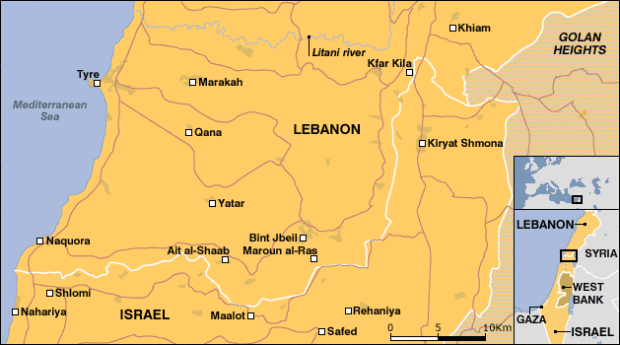
The spectre of a Hezbollah invasion of the Galilee, however plausible or possible, has not been discounted by Israel.
At the end of July, the mayor of Kiryat Shmona, a town near the Lebanese frontier, asked Defence Minister Moshe Yaalon to ascertain whether there are Hezbollah tunnels in southern Lebanon. Residents in the region, having heard muffled underground sounds of late, have been concerned that Hezbollah is up to no good.
By all accounts, Yaalon took the mayor’s request seriously. The defence ministry approached geologists at Tel Aviv University and hired them to undertake a study of the matter. Meanwhile, the general in charge of Israel’s Northern Command, Yair Golan, was recently quoted as saying that “there are no known attack tunnels coming from Lebanon.”
Nevertheless, the Israeli government remains vigilant, given Hezbollah’s intense animus toward the Jewish state and its ardent support of the Palestinian cause.
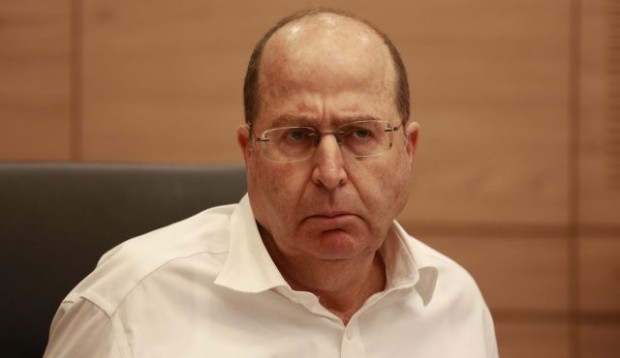
Last year, Nasrallah called for Israel’s destruction. “Israel poses a danger to all people of this region,” he declared. “Removing (Israel) is a Lebanese national interest. We the Shiites will not abandon Palestine, the Palestinian people or the sacred sites in Palestine.”
Hezbollah did not come to Hamas’ assistance during the recent war in Gaza, even though a senior Hamas official based in Cairo, Moussa Abu Marzouk, publicly appealed for help.
But in an interview on July 17, Ahmed Jibril, the secretary-general of the Popular Front for the Liberation of Palestine: General Command, disclosed that Iran, Syria and Hezbollah, all allies, have sent rockets, arms and munitions to Gaza in support of Hamas and its sister organization, Islamic Jihad.
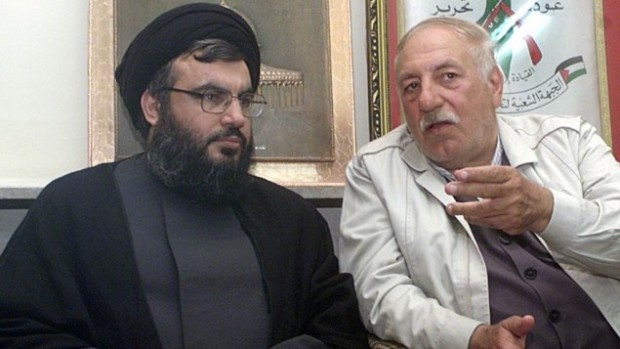
Jibril disclosed that the equipment was dispatched to Gaza via Syria, Sudan and the Sinai Peninsula. “The brothers in Hezbollah established cells of Bedouin in the Sinai Desert,” he added. “You could transfer the weapons to them, and they would get them into Gaza.”
Hezbollah and Israel have a long history of mutual animosity.
Hezbollah, formed after Israel’s 1982 invasion of Lebanon, launched a guerrilla war against Israel once it became clear that it had worn out its welcome. Lebanese Shiites, fed up with armed Palestinian groups in southern Lebanon, initially welcomed Israeli troops. But by 1983, when it was apparent that Israel had no intention of withdrawing, Hezbollah began attacking Israeli outposts.
As Israeli casualties mounted, public opinion in Israel turned against Israel’s presence in Lebanon. In May 2000, Israel withdrew unilaterally, but the pullout did not satisfy Hezbollah. Nasrallah demanded an Israeli withdrawal from the disputed Shebaa Farms — a small hilly area whose sovereignty has shifted between Syria and Lebanon — and occasional clashes erupted.
Hezbollah triggered the Second Lebanon War in July 2006 with the ambush of an Israeli army patrol, resulting in the deaths of three Israelis, and the kidnapping of two other Israeli soldiers. This incident took place inside Israeli territory. Israel hit back very hard, and Hezbollah responded with almost 4,000 rocket barrages. The war ended 34 days later, on Aug. 14, having claimed the lives of 121 Israeli soldiers and 43 civilians.
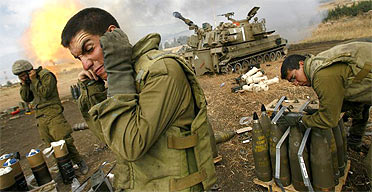
Israel did not defeat Hezbollah, but managed to create a new climate of deterrence. Since then, the Israel-Lebanese border region has been mostly quiet, but Israel and Hezbollah are still technically at war.
More than a year ago, Nasrallah threatened to turn the Golan Heights — seized by Israel from Syria in the 1967 Six Day War — into a new front. Israel reacted by bolstering its forces on the Golan. Israel, too, continued to bomb Hezbollah convoys carrying Syrian and Iranian rockets, but did not claim responsibility for these attacks.
In 2012 and 2013, Israeli aircraft shot down two Hezbollah drones over Israel. Nasrallah, having said they had been designed in Iran and assembled in Lebanon, promised more such flights.
Last year, a court in Cyprus sentenced a Hezbollah operative, Hossam Taleb Yaacoub, to a four-year prison term after finding him guilty of plotting to attack Israeli tourists on the island.
Several months ago, Nasrallah said he was not seeking a new war with Israel, but took credit for two attacks in March on Israeli army patrols near the Lebanese border and in Shebaa Farms. He also boasted that Hezbollah is much stronger today in terms of weapons, training and personnel. According to reports, Hezbollah has amassed an arsenal of upwards of 100,000 rockets.
This past May, in a televised address to mark the 14th anniversary of Israel`s unilateral withdrawal from southern Lebanon, Nasrallah declared that Hezbollah has the capacity to deter Israel, despite “the developments and events that are taking place in our region, especially in Syria.”
In a gamble testing its popularity in Lebanon, Hezbollah has thrown its support behind long time ally President Bashar al-Assad of Syria, having committed 4,000 to 5,000 fighters to his side in the civil war. Hezbollah has gained valuable battlefield experience in Syria, but has lost more than 500 of its fighters so far.
Israel, meanwhile, wants Hezbollah to know that it would be playing with fire should it initiate hostilities.
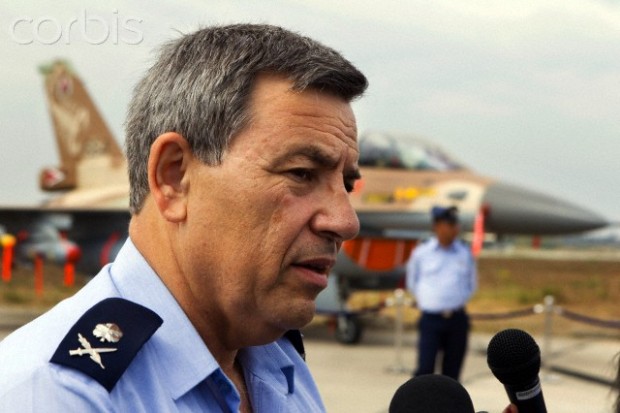
Two and a half months ago, Maj. Gen. Amir Eshel, the commander of the Israeli Air Force, warned Hezbollah that Israel is capable of inflicting severe damage on its military infrastructure. “It would take decades to restore,” said Eshel.
Shortly afterwards, Gen. Benny Gantz, the chief of staff of the Israeli armed forces, left a similar message. “Hezbollah is deterred,” he said. “It knows what will happen if it enters a war against us. It will push Lebanon dozens of years backward.”
